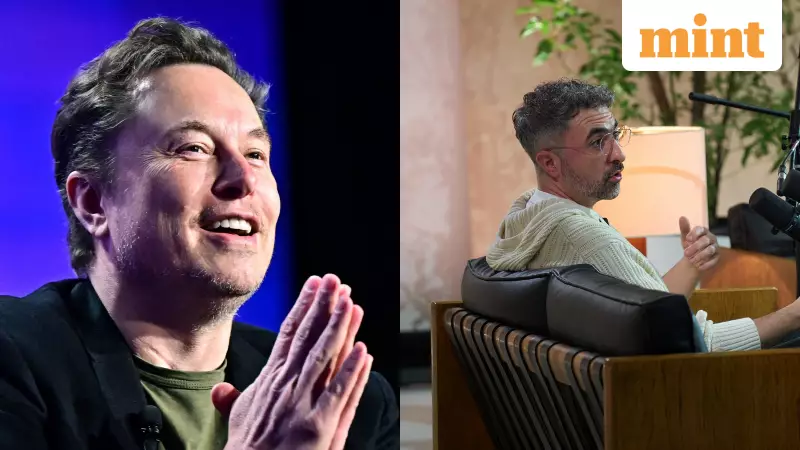
Elon Musk has publicly questioned Microsoft's efficiency after the company's AI CEO Mustafa Suleyman revealed staggering construction numbers for their new data center. The Tesla and SpaceX founder responded with skepticism to Suleyman's claim that building the Fairwater data center in Atlanta required over 15 million labor hours.
The Data Center Comparison That Sparked Controversy
Mustafa Suleyman, Microsoft's AI CEO, took to X (formerly Twitter) to share what he considered an impressive achievement. He stated that the Fairwater data center in Atlanta had already consumed more than 15 million labor hours during construction, with additional work still pending. To put this number in perspective, Suleyman compared it to the iconic Empire State Building, which required approximately 7 million labor hours to complete - less than half the time Microsoft's data center has taken.
Elon Musk, never one to shy away from public commentary, responded directly to Suleyman's post with a simple but pointed question: "Are you sure you're doing it right?" This brief response highlighted Musk's apparent disbelief at the extensive construction time Microsoft required for their data center project.
Musk's Proven Track Record in Rapid Construction
The basis for Musk's skepticism becomes clearer when considering his own company's achievements in data center construction. Elon Musk's xAI reportedly established a data center featuring 100,000 liquid-cooled NVIDIA H100 graphic processing units in just 19 days last year. This remarkable feat didn't go unnoticed in the tech industry.
NVIDIA CEO Jensen Huang publicly praised Musk's accomplishment during a conversation with Tesla Owners Silicon Valley. Huang stated that "as far as I know, there's only one person in the world who could do that; Elon is singular in his understanding of engineering and construction and large systems and marshaling resources; it's just unbelievable." This endorsement from one of the most respected figures in AI hardware adds significant weight to Musk's questioning of Microsoft's approach.
The Deepening Rivalry Between Musk and Microsoft
This recent exchange represents another chapter in the ongoing tension between Elon Musk and Microsoft, particularly in the artificial intelligence space. The rivalry intensified following ChatGPT's rise in late 2022, with Musk repeatedly criticizing Microsoft's influence over OpenAI.
Musk escalated the conflict legally by filing a lawsuit against OpenAI last year, which he expanded to include Microsoft in November 2024. The lawsuit alleges that Microsoft's backing transformed ChatGPT's creator into "a closed-source de facto subsidiary" of the tech giant. Despite this legal battle, Musk surprisingly partnered with Microsoft during the Build 2025 event, announcing that his Grok 3 and Grok 3 mini models would be available on the Azure AI Foundry platform.
Recently, Musk has intensified his warnings about Microsoft's relationship with OpenAI, describing the tech giant's continued investment as "insanely suicidal" and predicting that OpenAI would "eat Microsoft alive."
Musk's Counter-Offensive: Introducing Macrohard
Not content with merely criticizing Microsoft, Elon Musk has taken concrete steps to create direct competition. In August 2025, Musk launched a new company called Macrohard with the explicit goal of replicating Microsoft's work using artificial intelligence.
Musk explained his reasoning in a social media post earlier this year, noting that "Microsoft do not themselves manufacture any physical hardware, it should be possible to simulate them entirely with AI." While detailed information about Macrohard's strategy remains limited, it's clear that Musk's Grok AI will form the core of this ambitious challenge to Microsoft's dominance.
The public exchange between Musk and Suleyman highlights the intensifying competition in the AI infrastructure space, where construction efficiency and technological capability are becoming key differentiators in the race for AI supremacy.





